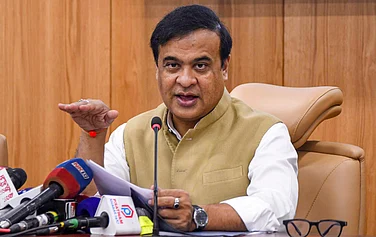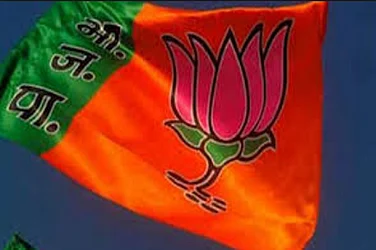Clad in a starched blue kurta, and immersed in the RJD poll campaign, Union railway minister Laloo Prasad Yadav decided the best way to take stock of another train mishap was from an armchair at his house in Patna. Images of a mangled heap of seven coaches and the engine of the Delta fast passenger train at Valigonda in Andhra Pradesh that flashed on his TV screen on October 29, however, brought home only a fragment of the horror.
As many as 114 passengers were killed when the train from Repalle to Secunderabad crashed into a swollen rivulet at Golnepalli village after flash floods washed a 20-ft bridge away. Several drowned in their sleep as the accident happened at 4.30 am. Petrified survivors clung on to luggage rings, rods, window grills and berths as they watched co-passengers being swept away by swirling waters.
The accident was caused by a breach in the Ramasamudram tank 900 metres away. Owing to constant rainfall, the tank had been receiving heavy inflows from four other tanks upstream. Golnepalli was already flooded and villagers had clambered on to rooftops at 2.30 am, only to watch the train disaster unfold in front of them two hours later.
K. Aditya, an 18-yr-old engineering student, had boarded the Delta fast at 10.50 pm at Guntur. He was awake when the train fell. "Suddenly we were neck-deep in water. I clung to the upper berth. A little girl who tried to catch hold of my friend's feet slipped and disappeared." Finally, when the stench from the rotting bodies proved too much, Aditya broke an emergency window and climbed out on to the bogie. It was 7.30 am then. He had hung on for three hours. Daily labourer Venkatramaiah saw his children Anusha, 6, and Ashok, 7, slip away from his hands. The children later joined the heap of dead bodies on the shore as the father wept inconsolably.
The engine driver, who had received no warning, applied the brakes but it was too late. He died while his assistant Srinivas lived to tell the horrific tale. The accident happened even as the state was on a disaster alert owing to statewide rains. The wave of water that hit the train after the tank breached was much like a cyclone. In August, the railway and irrigation department had inspected the tank and found it to be safe. Minister of state for railways R. Velu said no railway official was responsible for the mishap. The officiating general manager of the South Central Railway, Thomas Verghese, went a step ahead and squarely blamed the state's irrigation department for not warning the railways about the swelling tank. "Had they alerted us about a possibility in bunds being breached, we would have cancelled the train. But we had no such information."
For his part, irrigation minister Ponnala Lakshmaiah termed the railway's charges as preposterous. And former chief minister Chandrababu Naidu questioned the role of railway staff in the mishap. Where was the gangman on duty at the time, Naidu wanted to know. Initially, railway sources said the gangman sat in a cabin 250 m away from the bridge. He suddenly heard a roar and saw the lights go missing as the train plunged into water. Verghese, who had no information about the gangman's whereabouts on the day of the accident, later said he too had been swept away by the flash flood. "He was rescued by some villagers and is being treated for injuries on his thigh," explained Verghese. An inquiry has been ordered.
Introduced six months ago, the Delta fast passenger was a poor man's train. Most travellers are daily labourers. On October 29, most were on their way to Hyderabad to celebrate Diwali. Sadly, so many have become victims to a tragedy which could easily have been avoided.
Rail To Perdition
A little alertness could have averted the Delta disaster

Rail To Perdition
Rail To Perdition
Published At:
MOST POPULAR
WATCH
MORE FROM THE AUTHOR
PHOTOS
×




















